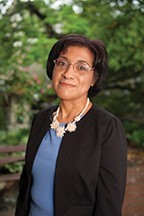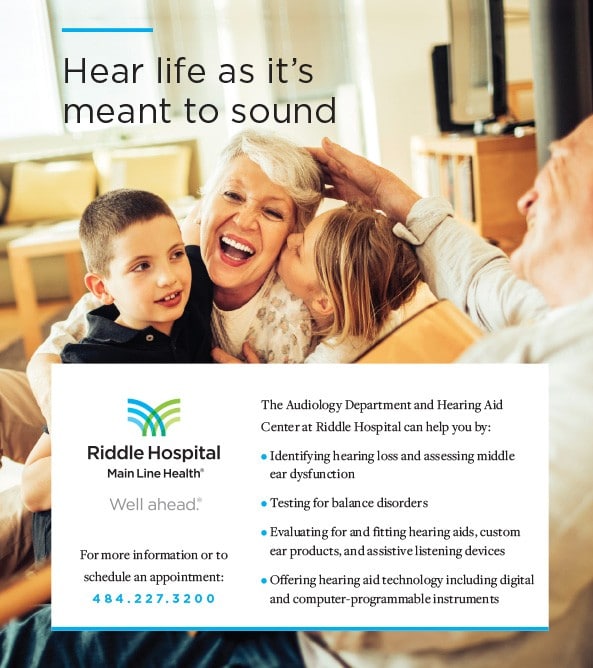How To Succeed With Hearing Aids

By Denise E. Stewart, M.S., CCC-A/FAAA, Clinical Audiologist
“A hearing aid is an ultra-miniature electro-acoustic device that is always too large. It must amplify a sound a million times but bring in no noise. It must operate, without failure, in a sea of perspiration, a cloud of talcum powder, or both. It is a product that one puts off buying for ten years after he needs it but cannot do without for thirty minutes when it has to be serviced.” ~ Attributed to Samuel Lybarger in 1979
I have witnessed the progress and developments of the hearing aid industry, over the past 30 years, address each of the issues cited. Still, people find roadblocks to success with hearing aids. It remains true that most people who could benefit from hearing aids wait an average of 10 years before buying their first set. People who have yet to try hearing aids may have doubts that hearing aids work based upon negative experiences of friends or relatives. Concerned patients often ask, “Will hearing aids work for me?” This is a great question because it brings attention to the importance of the individual rather than the device.
This brings us to the question: How can a person succeed with hearing aids?
Have Realistic Expectations Based Upon Individual Capabilities and Needs
Your audiologist will be able to tell you your potential for hearing aid benefit based upon your case history, listening needs and a series of diagnostic tests. Each individual with hearing loss is unique and will present communication strengths and weaknesses. The ability to hear well in background noise is an example of an individual strength.
For instance: “Ed” and “Fred” have a similar hearing loss which presents both with difficulty hearing conversation in noise. However, Fred also reports occasional difficulty understanding quiet conversation. After each is fit with a pair of hearing aids, Ed reports good success in background noise. Fred reports good success hearing quiet conversation but continues to report some difficulty in background noise. The difference in communication performance results not from the device, but the inherent ability to discern audible speech information in challenging listening conditions. Even with the best hearing aid technology, ability to understand conversation in background noise will vary among individuals.
Give Yourself Time to Adjust to Hearing Aids
When you are new to using hearing aids your ears and brain are inundated with sounds that have been heard at a reduced level or have not been heard at all, especially for those who have had hearing loss for 10 or more years. Don’t expect to understand 100% of conversation the first day you are fit with hearing aids. It is important to use the hearing aids daily in quieter settings first. You will hear more soft speech sounds in quiet which will improve your ability to recognize these sounds in noisier settings once you are a more experienced listener.
Proper Cleaning and Maintenance
Hearing aids work best when they are clean and free from debris. Most modern hearing aids have “wax traps” which require replacement on a regular basis. Regular maintenance is key to keeping your hearing aids in good working order. Your audiologist will inform you how to clean and care for your devices.
Share Your Hearing Aid Problems with Your Audiologist – Not Your Friends
If you are having difficulty with your hearing aids, contact your audiologist for assistance. Friends may advise you based upon their experiences, but your hearing difficulties and communication needs are not the same as your friends’. Don’t assume your audiologist will tell you to get new hearing aids. Your hearing aids may only need maintenance or a minor adjustment to solve your problem. No matter the hearing aid problem, your audiologist is the best person to advise you.
The Riddle Difference
The audiologists at Riddle Hospital will provide you with the information and support you need to achieve better hearing and success with hearing aids. The process starts with a comprehensive audiologic evaluation followed by a listening needs assessment and hearing aid demonstration. The audiologist will provide you with the best recommendations for a hearing treatment plan tailored to your auditory capabilities and listening needs
For more information visit our website www.mainlinehealth.org/riddleaudiology
or call 484-227-3200
Jessica M. Bell, Au.D., Director/Doctor of Audiology
Alexa R. Lynch, Au.D, Doctor of Audiology
Denise E. Stewart, M.S., Clinical Audiologist
Lisa C. Mackenzie, M.S., Clinical Audiologist
RIDDLE HOSPITAL
Audiology & Hearing Aid Center
1118 West Baltimore Pike, Suite 207
Media, PA 19063
(484) 227-3200


